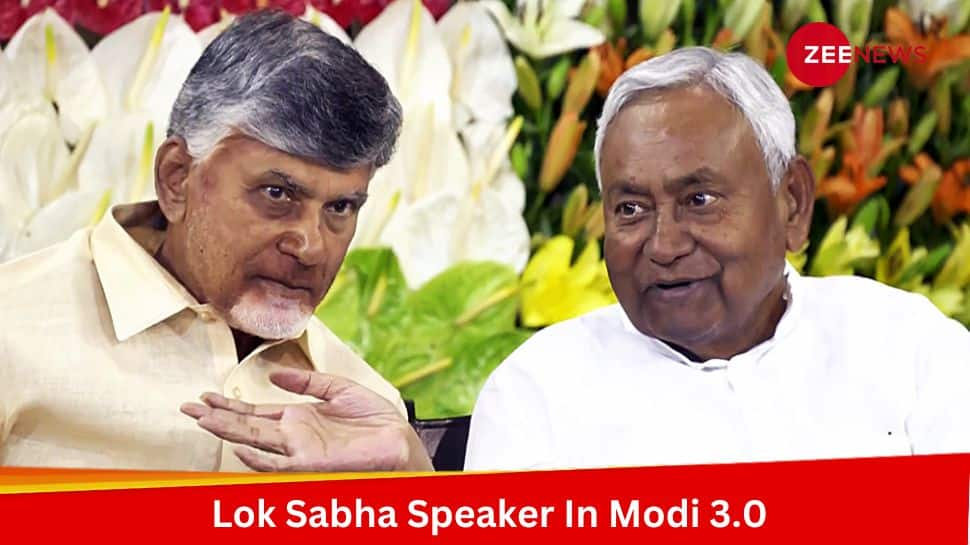A total of 72 ministers took oath on Sunday after the Bharatiya Janata Party (BJP), which was 32 seats short of the Lok Sabha majority, reached a quick consensus with its coalition just four days after the Lok Sabha results were announced. However, the cabinet berths are yet to be allocated, with special attention given to N Chandrababu Naidu's TDP and Nitish Kumar's JDU, both of whom reportedly want to claim the position of Lok Sabha Speaker.
The Speaker's position becomes vacant right before the new Lok Sabha (the lower house of India's Parliament) meets for the first time. Afterward, the Lok Sabha elects a permanent Speaker with a simple majority vote. In the last two Lok Sabhas, where the BJP had a majority, Sumitra Mahajan and Om Birla served as the Speakers.
The TDP's GMC Balayogi was the Speaker during Atal Bihari Vajpayee’s tenure as Prime Minister under the NDA coalition. The TDP might refer to this to claim the Speaker’s position. Meanwhile, the JD(U) also wants this role because its President, Nitish Kumar, has previously accused the BJP of trying to break up his party after he left the NDA only to rejoin before the Lok Sabha elections in 2024.
A Speaker is responsible for running a house in a non-partial manner despite being a representative of a particular party. The Speaker becomes the principal spokesperson and interpreter of the House's rules, holding significant authority over proceedings and disqualification matters under the anti-defection law, according to the constitution.
The Speaker is seen as a ceremonial figure in cases where the ruling party holds the majority mandates. However, in coalition governments, the role becomes crucial as the non-partisan nature of the position becomes mandatory.
Usually, the ruling alliance gets the Speaker's position, and the opposition gets the deputy Speaker's role, though this isn't required by any rule.
G.V. Mavalankar of the Indian National Congress (INC) served as the first Speaker of an independent India. Neelam Sanjiva Reddy of the Janata Party became the first non-Congress Speaker, though he held the position briefly. After being elected Speaker of the fourth Lok Sabha, Reddy resigned from the Congress.
Others, like PA Sangma, Somnath Chatterjee, and Meira Kumar, did not formally resign but asserted that they represented the entire House rather than a single party.
















